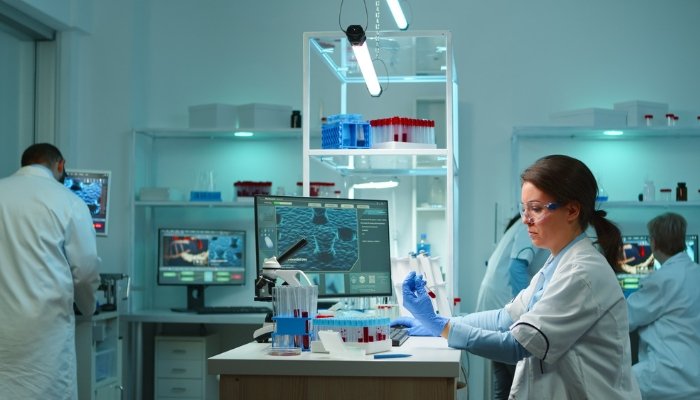Leadership is a vital component of the pharmacy profession, influencing not only individual career trajectories but also the effectiveness and quality of patient care. As the healthcare landscape evolves, the role of pharmacists expands beyond dispensing medications to include patient counseling, healthcare management, and policy advocacy. Developing strong leadership skills is essential for pharmacists to navigate these responsibilities effectively and make meaningful contributions to the healthcare system. This article explores the importance of leadership in pharmacy, the essential skills required, and strategies for building these skills.
The Importance of Leadership in Pharmacy
Enhancing Patient Care
Effective leadership in pharmacy is crucial for enhancing patient care. Pharmacists often serve as the first point of contact for patients seeking medical advice. Strong leadership skills enable pharmacists to communicate effectively, make informed decisions, and advocate for patient needs. Leaders in pharmacy can also inspire their teams to maintain high standards of care and continuous improvement, leading to better patient outcomes.
Driving Innovation
The pharmacy profession is continuously evolving with advancements in technology and medicine. Leaders in pharmacy play a critical role in driving innovation by staying informed about the latest developments, implementing new technologies, and encouraging a culture of creativity and problem-solving. This proactive approach helps pharmacies adapt to changes, improve efficiency, and offer advanced services to patients.
Shaping Policy and Advocacy
Pharmacists with leadership skills are well-positioned to influence healthcare policies and advocate for the profession. By participating in professional organizations, engaging with policymakers, and contributing to public health initiatives, pharmacist leaders can help shape policies that impact the practice and ensure the profession’s voice is heard in legislative discussions.
Building Strong Teams
Leadership is essential for building and maintaining strong, cohesive teams. Pharmacist leaders who foster a supportive and collaborative work environment can enhance team morale, improve job satisfaction, and reduce turnover. Effective leaders also mentor and develop their team members, helping them grow professionally and contribute to the success of the pharmacy.

Essential Leadership Skills for Pharmacists
Communication
Effective communication is the cornerstone of leadership in pharmacy. Pharmacists must be able to convey information clearly and concisely to patients, healthcare professionals, and team members. This includes active listening, empathetic communication, and the ability to provide constructive feedback. Strong communication skills help prevent misunderstandings, ensure accurate medication use, and build trust with patients and colleagues.
Decision-Making
Pharmacists often face complex and time-sensitive decisions. Strong decision-making skills enable them to assess situations quickly, weigh options, and choose the best course of action. This requires critical thinking, problem-solving abilities, and the capacity to manage risks. Leaders in pharmacy must also be decisive and confident in their choices, while remaining open to feedback and alternative perspectives.
Emotional Intelligence
Emotional intelligence (EI) is the ability to understand and manage one’s emotions and those of others. High EI is crucial for pharmacy leaders as it enhances interpersonal relationships, improves conflict resolution, and fosters a positive work environment. Leaders with high EI are more empathetic, adaptable, and skilled at navigating the emotional complexities of patient care and team dynamics.
Strategic Thinking
Strategic thinking involves planning for the future, setting long-term goals, and anticipating potential challenges. Pharmacist leaders with strong strategic thinking skills can develop and implement effective strategies to achieve their vision, whether it’s improving patient care, expanding services, or advancing the profession. This skill also involves staying informed about industry trends and being proactive in adapting to changes.
Adaptability
The healthcare landscape is constantly changing, and adaptability is a key leadership skill for pharmacists. Leaders must be flexible and open to change, whether it’s adopting new technologies, adjusting to regulatory updates, or responding to shifts in patient needs. Adaptable leaders can guide their teams through transitions smoothly and ensure that the pharmacy remains resilient and responsive.
Mentorship
Mentorship is an essential component of leadership in pharmacy. Effective leaders invest in the development of their team members, providing guidance, support, and opportunities for growth. Mentorship helps build a pipeline of future leaders, enhances job satisfaction, and contributes to a culture of continuous learning and improvement.

Pursuing Formal Educations and Trainings
One of the most effective ways to build leadership skills is through formal education and training programs. Many universities and professional organizations offer courses and certifications in leadership, management, and related areas. These programs provide valuable knowledge and skills, as well as opportunities to network with other professionals and learn from experienced leaders.
Gaining Practical Experience
Practical experience is crucial for developing leadership skills. Pharmacists can seek out leadership roles within their workplaces, such as managing a team, leading a project, or serving on a committee. These experiences provide hands-on opportunities to practice and refine leadership skills in real-world settings.
Participating in Professional Organizations
Joining professional organizations, such as the American Pharmacists Association (APhA) or the International Pharmaceutical Federation (FIP), offers numerous benefits for aspiring leaders. These organizations provide access to leadership development programs, conferences, and networking opportunities. They also offer platforms for advocacy and policy engagement, allowing pharmacists to contribute to the advancement of the profession.
Seeking Mentorship
Mentorship is a powerful tool for building leadership skills. Aspiring leaders can seek out mentors who are experienced and respected in the field. Mentors can provide valuable guidance, feedback, and support, helping mentees navigate their career paths and develop their leadership abilities.
Engaging in Self-Reflection
Self-reflection is an important practice for developing self-awareness and improving leadership skills. Pharmacists can regularly assess their strengths and weaknesses, set personal and professional goals, and reflect on their experiences and actions. This ongoing process of self-evaluation and growth helps leaders stay focused and motivated.
Embracing Lifelong Learning
The pharmacy profession is dynamic, and continuous learning is essential for effective leadership. Pharmacists can stay current with industry trends, advancements, and best practices by attending conferences, reading professional journals, and participating in continuing education programs. Lifelong learning ensures that leaders are well-equipped to navigate changes and drive innovation in their practice.

Developing Emotional Intelligence
Emotional intelligence can be developed through intentional practice and training. Pharmacists can work on improving their self-awareness, self-regulation, empathy, and social skills through various exercises and activities. This may include mindfulness practices, stress management techniques, and seeking feedback from others.
Building a Supportive Network
A strong professional network is invaluable for aspiring leaders. Pharmacists can build relationships with colleagues, mentors, and industry leaders who can offer support, advice, and collaboration opportunities. Networking helps leaders stay connected, share knowledge, and access resources that can enhance their leadership journey.
Conclusion
Building leadership skills in pharmacy is essential for advancing the profession and improving patient care. By developing strong communication, decision-making, emotional intelligence, strategic thinking, adaptability, and mentorship skills, pharmacists can become effective leaders in their field. Pursuing formal education, gaining practical experience, participating in professional organizations, seeking mentorship, engaging in self-reflection, embracing lifelong learning, developing emotional intelligence, and building a supportive network are all strategies that can help pharmacists cultivate their leadership abilities. As the healthcare landscape continues to evolve, pharmacists with strong leadership skills will be well-positioned to drive innovation, influence policy, and lead their teams to success.








